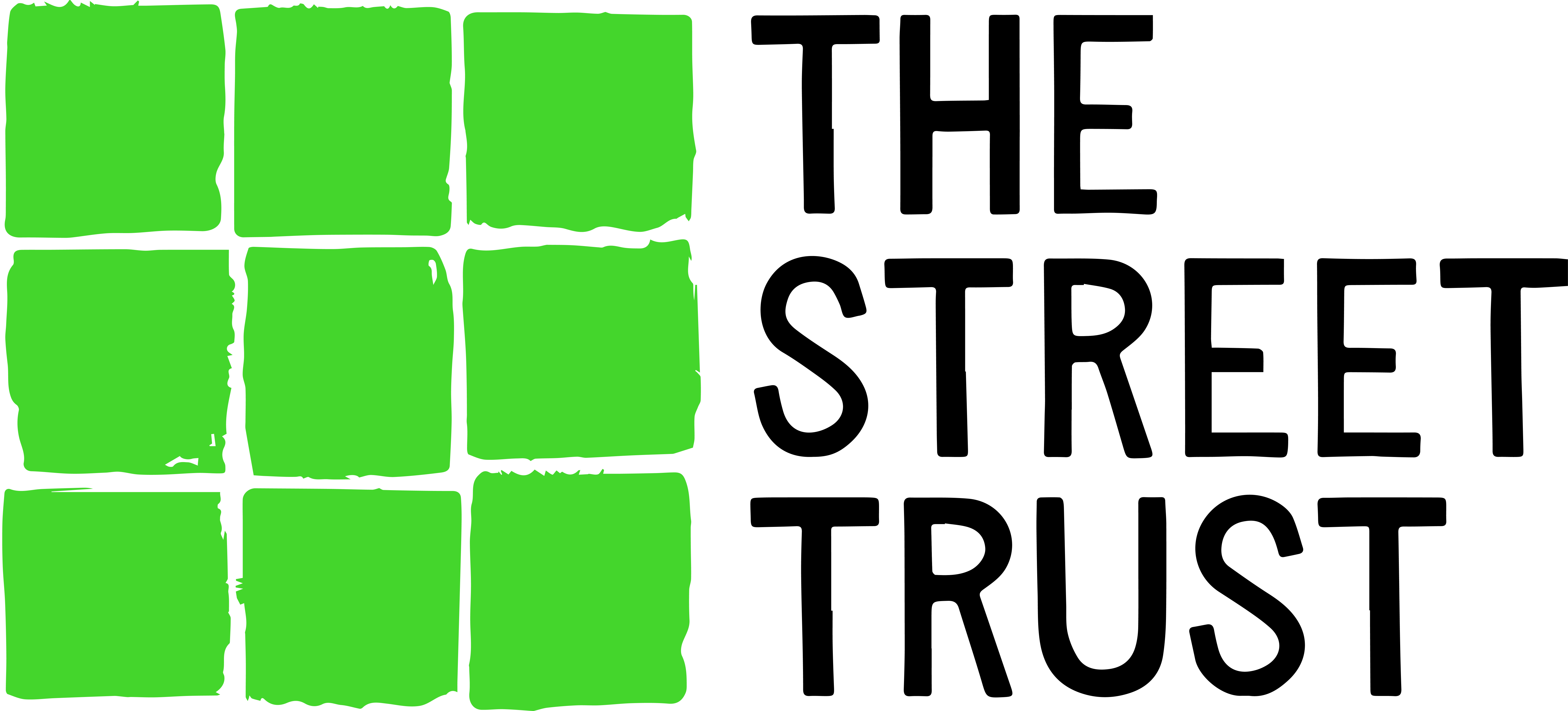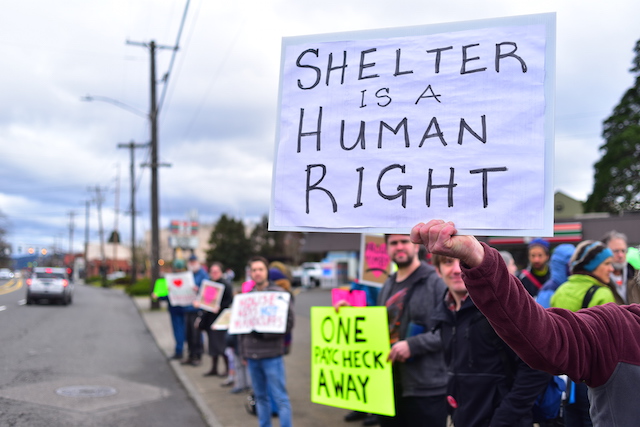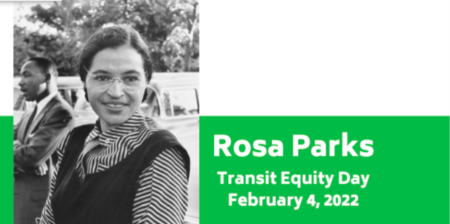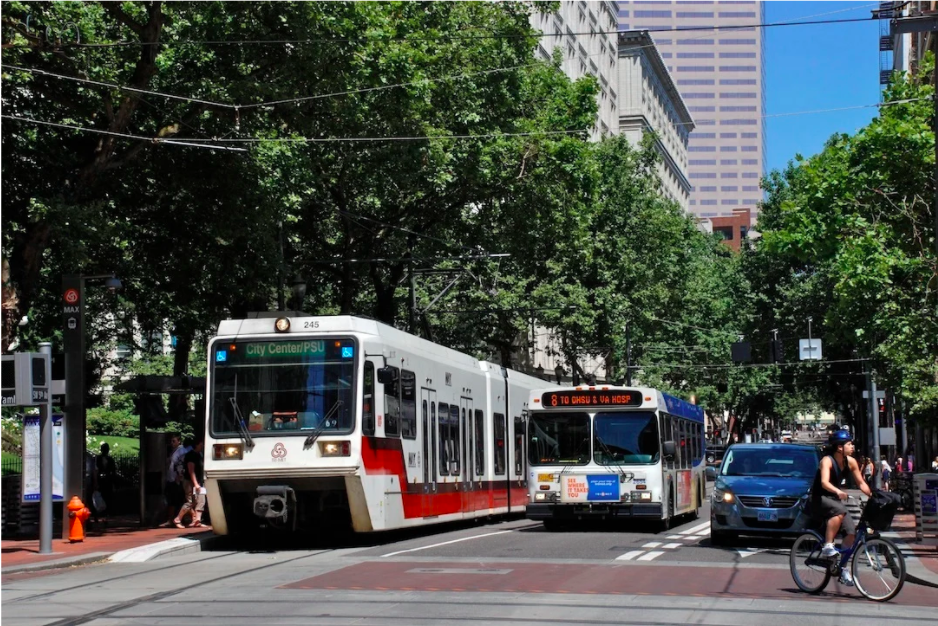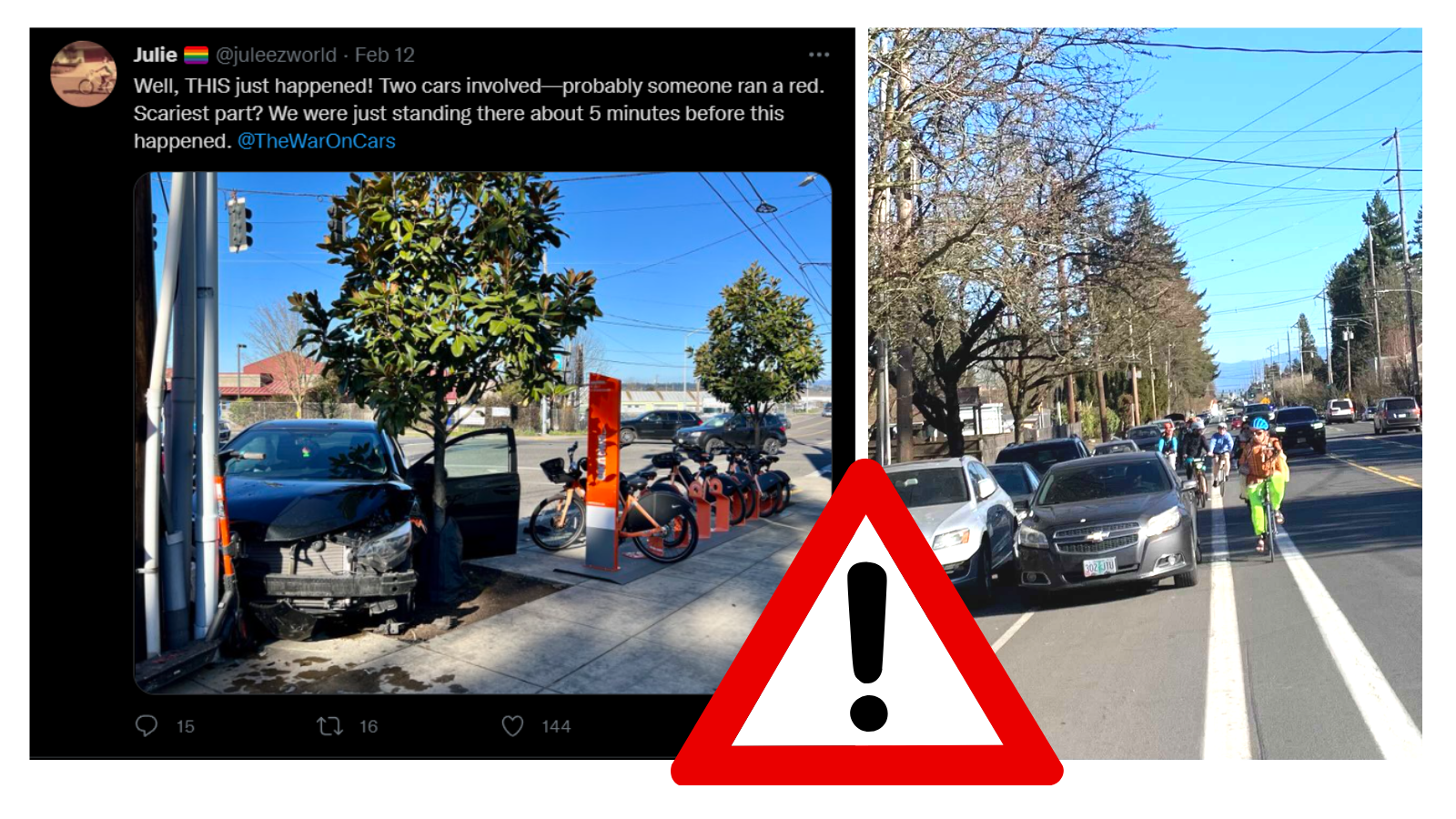
During the past year, The Street Trust has renewed its focus on regional transportation advocacy but we still show up at the municipal level to shape better outcomes.
Recently, we showed up for street users in the City of Portland in four key efforts:
- Supported PBOT’s proposed Parking Climate and Equitable Mobility Transaction Fee alongside our colleagues at Verde, Parking Reform Network, Oregon Environmental Council, and Getting There Together coalition. The resolution to apply a parking surcharge to fund services like the transportation wallet and Biketown passed City Council unanimously this week.
- Supported PBOT’s Safety Camera bill (HB 4105-1) in the Oregon Legislature to allow civilian review of automated traffic enforcement citations. (Did you know that in Portland, 100% of automated traffic enforcement violation review occurs on police over-time!?!) This legislation has passed out of the House and Senate committees. Now it’s on to a floor vote and, if that is successful, back to the House Rules Committee one more time before the session ends.
- Opposed PBOT’s proposed installation of unprotected cycling infrastructure on NE Killingsworth along with with BikeLoud PDX, Andando en Bicicletas y Caminando, and Community Cycling Center. You can read about our close call with an out of control automobile on NE Killingsworth last weekend along with recommendations for reducing traffic fatalities in this Oregon Way piece: We must act now to stop traffic Fatalities in Oregon.
- Opposed Mayor Wheeler’s sweeps of houseless people camping along dangerous roadways. Nowhere in any transportation study, advocacy campaign, nor community forum seeking to address our roadway safety problems has it been suggested that unhoused people and encampments should be swept or outright banned as a partial solution to this crisis. We organized with over two-dozen organizations, including Oregon Walks, Verde, Street Roots, Central City Concern, and Transition Projects, Inc. to push back on this non-solution to our traffic fatalities crisis and will continue to promote proven solutions to traffic safety. Read the Street Roots update here: Mayor’s order forbidding camping in high-traffic areas leaves unhoused Portlanders with few places to go
This is an important level of advocacy work that The Street Trust attempts to replicate locally in cities across the region. But it is labor intensive and difficult to fund. Your support makes the difference between The Street Trust having the capacity to lead on the these issues or sitting by in silence.
Join The Street Trust or make a donation today.
